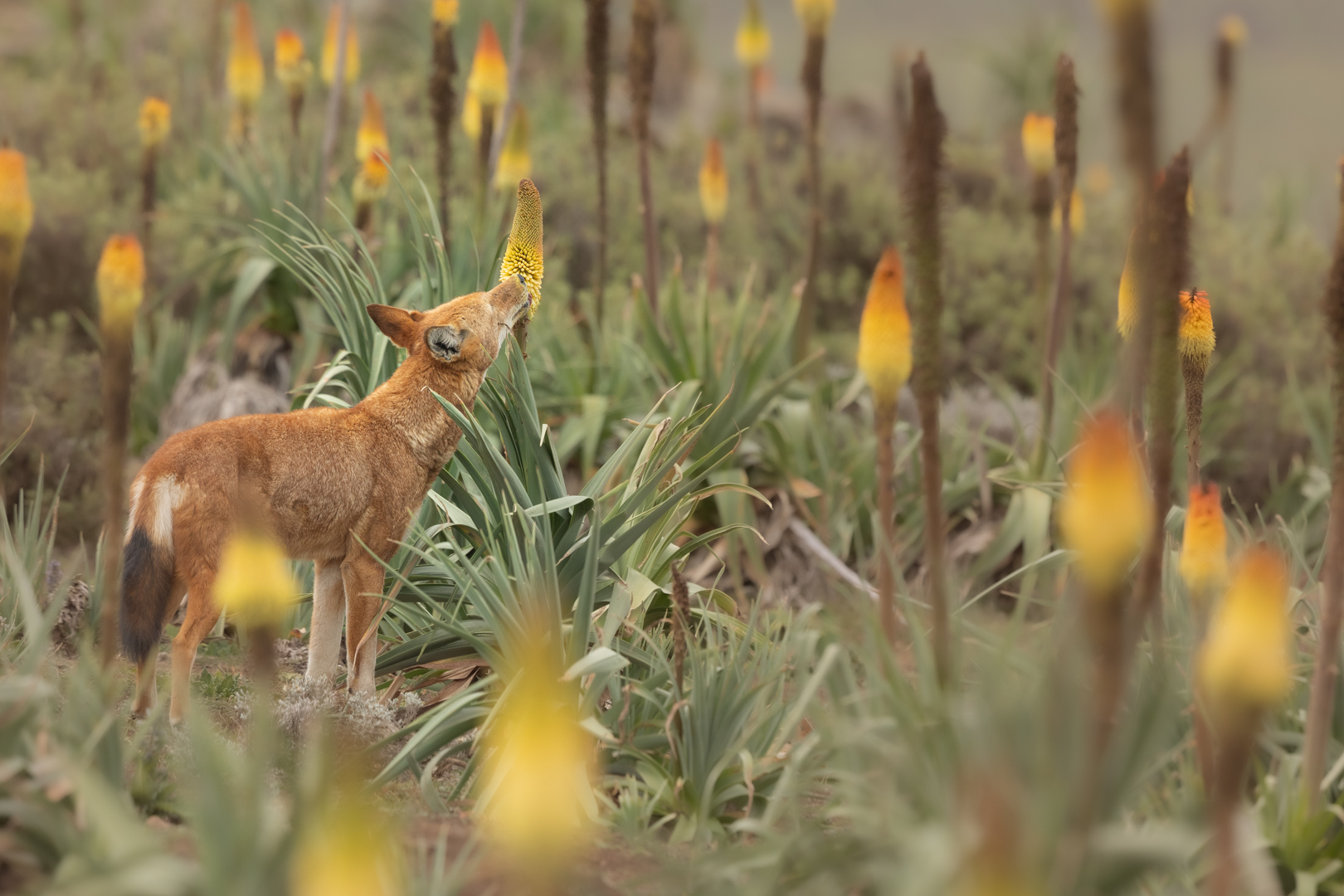Never mind the birds and the bees, wolves with a sweet tooth may be playing a prominent role in the pollination of a flowering plant native to the highlands of Ethiopia. For the first time, Ethiopian wolves have been documented feeding on the nectar of Ethiopian red hot poker flowers (Kniphofia foliosa).
Up in the Bale Mountains of southern Ethiopia, scientists observed six different Ethiopian wolves foraging on red hot poker plants over four consecutive days.
By messily licking the nectar-dripping bodies, the wolves would accumulate a large amount of pollen on their muzzles. They would then head over to other plants to obtain more of the juicy nectar, potentially transferring pollen as they go. Some individuals would visit as many as 30 blooms in a single nectar-slurping session.
“I first became aware of the nectar of the Ethiopian red hot poker when I saw children of shepherds in the Bale Mountains licking the flowers. In no time, I had a taste of it myself – the nectar was pleasantly sweet. When I later saw the wolves doing the same, I knew they were enjoying themselves, tapping into this unusual source of energy,” Professor Claudio Sillero, founder and director of the Ethiopian Wolf Conservation Programme based at the University of Oxford, said in a statement.
The unique observation of the pollen-crossing canids has several fascinating implications.

An Ethiopian wolf (Canis simensis) feeding amongst the blooming Ethiopian red hot poker flowers (Kniphofia foliosa).
Image credit: © Adrien Lesaffre
Firstly, it’s the only large carnivore species ever to be reported feeding on nectar. It also seems likely (although not categorically proven) that the wolves might be acting as pollinators of the plants.
Pollination by non-flying mammals is not unheard-of. Small marsupials, like sugar gliders, as well as more commonly known critters, like rats, are known to spread pollen through their movements. However, it’s extremely unusual to see the behavior in such a large mammal, not least a carnivore that’s typically invested in meat eating.
Secondly, the behavior might entail an example of social learning, as the team observed adults bringing juveniles to the flower fields and showing them their licking technique.
The Ethiopian wolf (Canis simensis) is similar to the coyote, distinguished by its long and narrow skull, and distinctive red and white coat of fur. The species holds the unfortunate title of the rarest wild canid species in the world, plus Africa’s most threatened carnivore. It’s estimated that fewer than 500 individuals are alive today, existing in just 99 packs limited to just six enclaves in the Ethiopian highlands.
Not only is this endangered species a truly charismatic creature, but these latest observations also underscore its potential to play a fundamental role in the broader ecosystem.
“These findings highlight just how much we still have to learn about one of the world’s most-threatened carnivores. It also demonstrates the complexity of interactions between different species living on the beautiful Roof of Africa. This extremely unique and biodiverse ecosystem remains under threat from habitat loss and fragmentation,” added Dr Sandra Lai, lead study author and Postdoctoral Researcher at the Ethiopian Wolf Conservation Programme.
The study is published in the journal Ecology.
Source Link: Do Wolves Pollinate? Large Carnivores Seen Slurping On Nectar For First Time